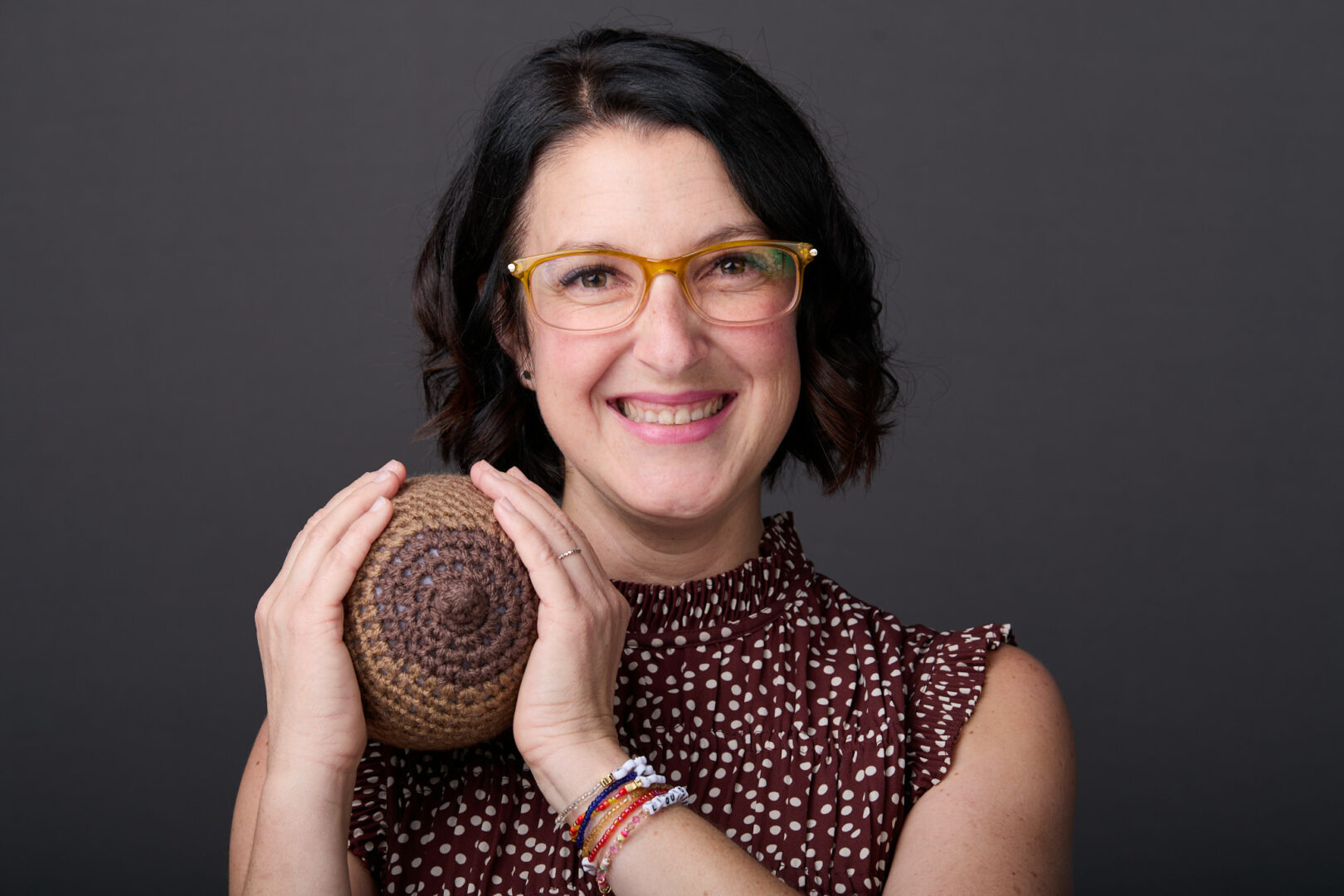We recently connected with Holly Hill and have shared our conversation below.
Holly, thank you so much for joining us today. Let’s jump right into something we’re really interested in hearing about from you – being the only one in the room. So many of us find ourselves as the only woman in the room, the only immigrant or the only artist in the room, etc. Can you talk to us about how you have learned to be effective and successful in situations where you are the only one in the room like you?
When I think about being “the only one in the room,” I go back to how it felt to be the new parent who didn’t know what she didn’t know. When I had my first baby, I was already a nurse, but even my nursing education and postpartum work experience didn’t prepare me for what happened one week after birth.
I was engorged and uncomfortable, and I had no idea what to do. I struggled with latching issues and didn’t even know what questions to ask or where to turn for help. To make things worse, I noticed one breast always made more milk than the other. I thought something was wrong with me. I remember bringing it up at work to a colleague, and she laughed and said, “What? You thought you’d just be even?!”
She didn’t mean harm, I’m sure she was trying to normalize my experience, but I walked away feeling embarrassed, small, and more insecure.
Now, years later, as a board-certified lactation consultant with nearly a decade of experience and as a nurse of 20 years, I think about that moment every time I’m the “only one in the room.” I know what it feels like to carry those unspoken worries and to feel like you must be the only one with this problem. I use those memories to anticipate my clients’ questions and answer them before they become bigger issues. I normalize what they’re experiencing with empathy and compassion, so they never have to feel ashamed for asking.
Being the only one in the room means I get to hold the light for someone else, to let them know they are not alone, that what they’re going through is normal, and that their concerns are valid. That’s part of why I named my business Light Up Lactation: to shed light, to hold light, and to ease burdens to make them lighter.
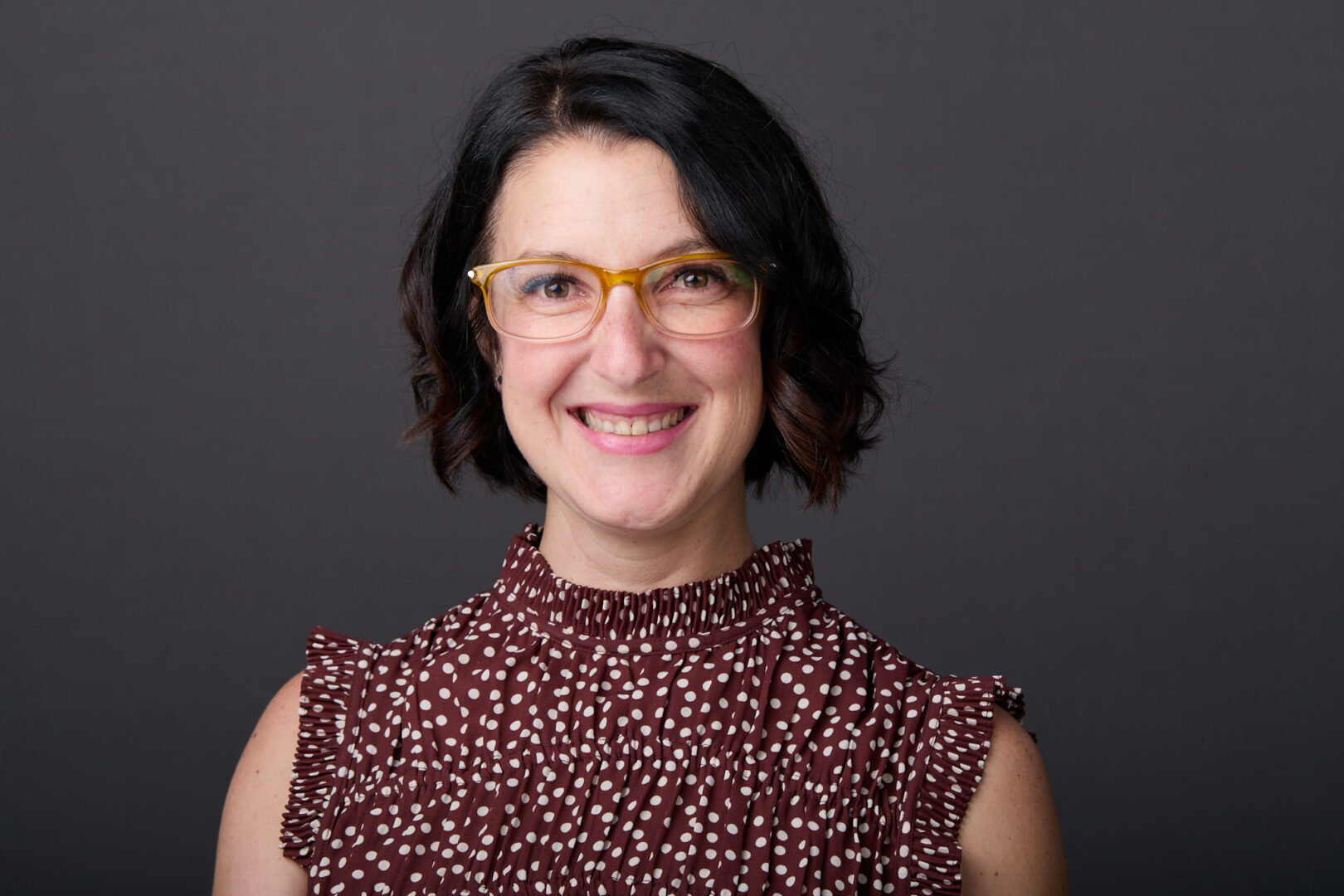
Great, so let’s take a few minutes and cover your story. What should folks know about you and what you do?
I have the privilege of supporting parents in so many different ways, and that’s what I love most about my work. Whether it’s through my prenatal breastfeeding class, available both in person and online, or one-on-one lactation consults with the incredible Breezy Babies team where I can meet families in their homes or through a telehealth visit, I get to meet families right where they are and shine a light on their feeding journey.
One of my favorite things I do is host a free breastfeeding support group. Right now, we meet twice a month, and it’s such a beautiful space where parents can share their highs and lows, ask questions, and find a community that understands them. My dream is to offer this group even more often and eventually add a virtual option so that no one feels left out, no matter where they live.
When I’m not meeting with families, you can find me on social media (Instagram @light_up_lactation, Tiktok and Facebook as Light Up Lactation) where I share practical tips and tricks that parents can use right away. They’re like little nuggets of wisdom that make feeding feel just a bit easier. For those who want to dive deeper, I recently launched my Lactation 101 online course bundle. It’s self-paced, instantly accessible, and designed to guide parents through the most common questions and challenges around latching, milk supply, and troubleshooting so they can feel supported any time, day or night. You can find it anytime at lightuplactation.com.
My goal is to encourage and empower every parent to feel confident, supported, and never alone on this journey.
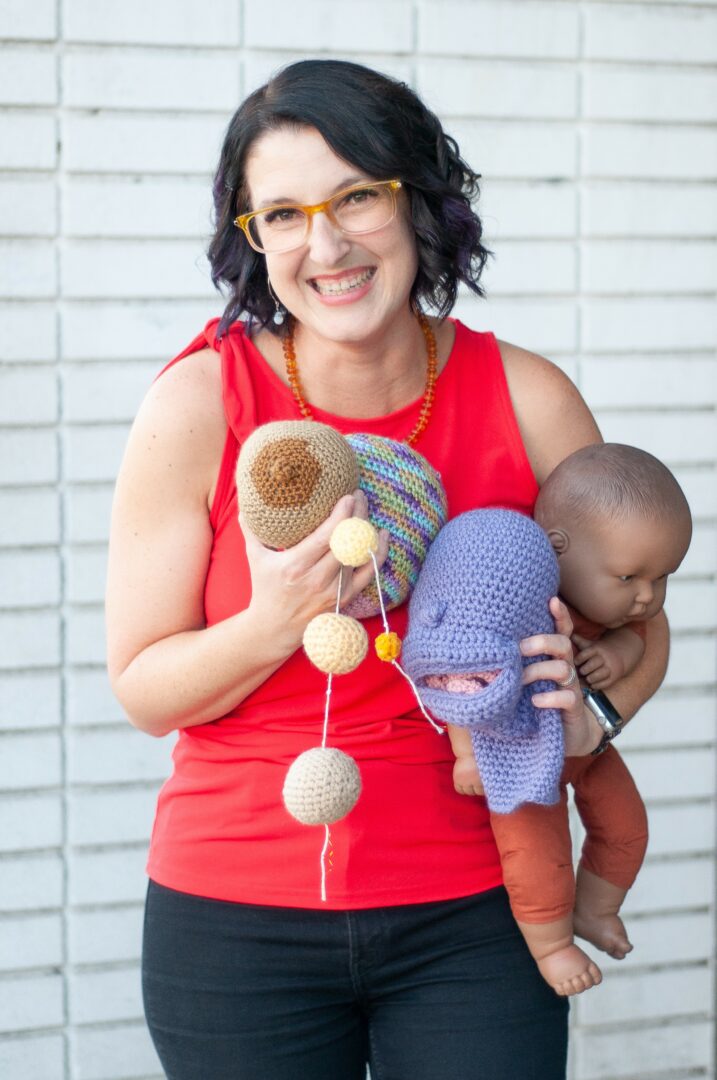
Looking back, what do you think were the three qualities, skills, or areas of knowledge that were most impactful in your journey? What advice do you have for folks who are early in their journey in terms of how they can best develop or improve on these?
Looking back, the three qualities that have shaped my journey the most are my ability to truly connect with anyone, my talent for turning medical knowledge into something parents can actually use and understand, and my commitment to connecting families with the right resources. Whether I’m sitting with a brand-new parent who feels completely overwhelmed or celebrating a hard-won milestone with a family weeks later, that connection is what creates trust and safety.
All the medical training in the world doesn’t mean much if it can’t be applied in the middle of a 2 a.m. feeding struggle. One of my favorite parts of what I do is translating complex, technical information into simple steps that parents can put into action right away. When something is outside my scope, or a family needs extra support, I love being able to say, “You don’t have to figure this out alone. Here’s your next step.”
For families who are just beginning their feeding journey, I encourage you to look for a lactation consultant who will meet you with compassion, explain things clearly, and connect you with the help you need. For those dreaming of becoming a lactation consultant, invest time in practicing these skills: listening deeply, explaining things in a way that makes sense to anyone, and learning about the network of resources in your community.
These are the qualities that allow me to show up for families during one of the most vulnerable seasons of their lives, and it’s an honor to shine a light on their path forward.
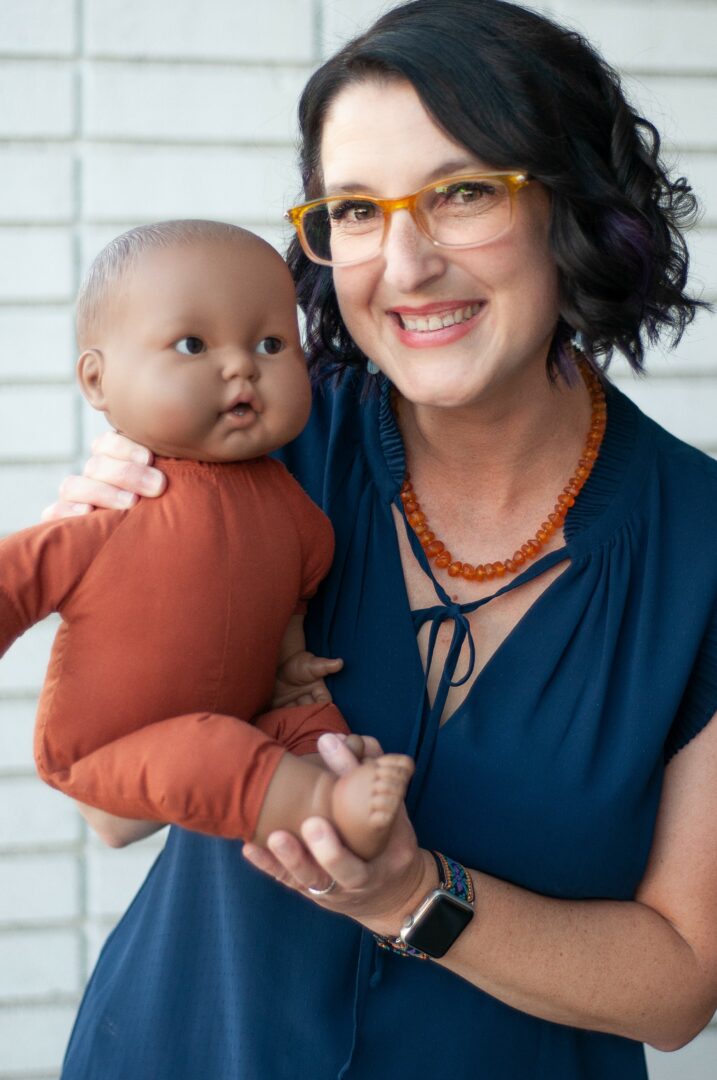
What has been your biggest area of growth or improvement in the past 12 months?
My biggest area of growth in the past year has been stepping fully into my role as a business owner and having the privilege of visiting families in their own homes. After nursing school, I worked exclusively as a postpartum bedside nurse and truly thought that was where I’d spend my entire career. Becoming a lactation consultant expanded my world, allowing me to support families beyond those first few days. However, it wasn’t until I started my own private practice that everything shifted.
Now, I have the opportunity to walk with families through so many stages of their journey. I get to see babies not just once in the hospital, as I did in the past, but over multiple visits as I watch them grow, hit milestones, start solids, and eventually wean. This continuity of care has allowed me to improve my skills in helping parents navigate each new phase of feeding with confidence.
Most importantly, it has allowed me to build deeper relationships with the families I serve. I don’t just show up for the first chapter of their story; I get to walk alongside them through the whole book.
Contact Info:
- Website: https://lightuplactation.com
- Instagram: https://www.instagram.com/light_up_lactation/
- Facebook: https://www.facebook.com/profile.php?id=61553418809197
- Youtube: https://www.youtube.com/@LightUpLactation
- Other: TikTok: https://www.tiktok.com/@lightuplactation?is_from_webapp=1&sender_device=pc
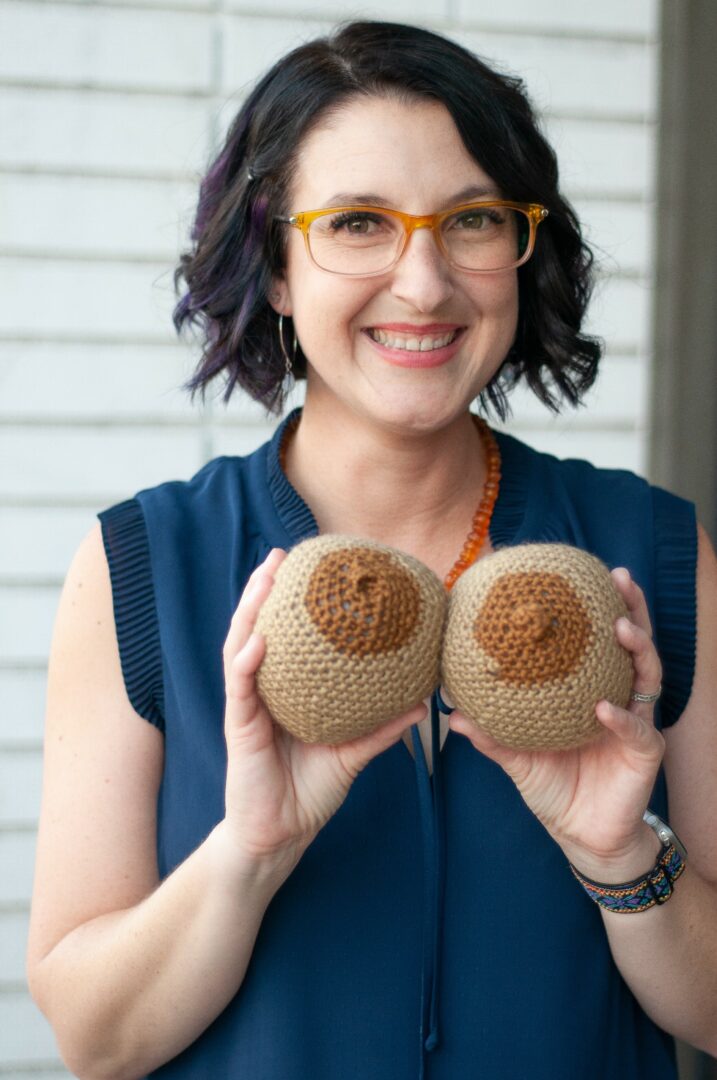
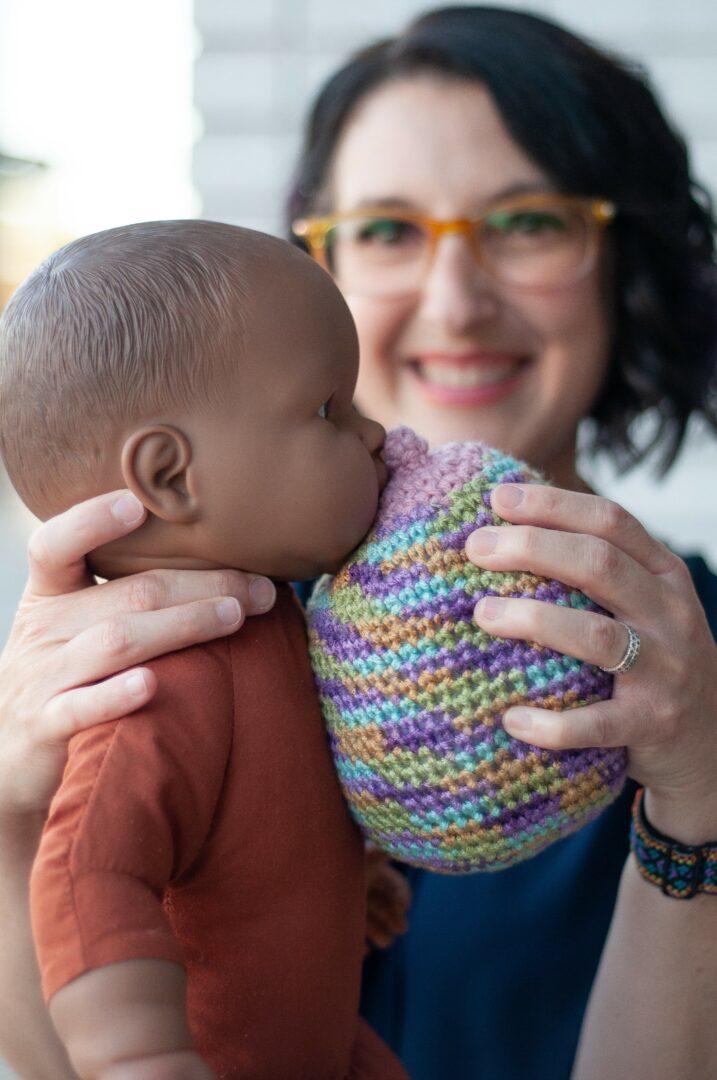
Image Credits
MLE Photography
so if you or someone you know deserves recognition please let us know here.

